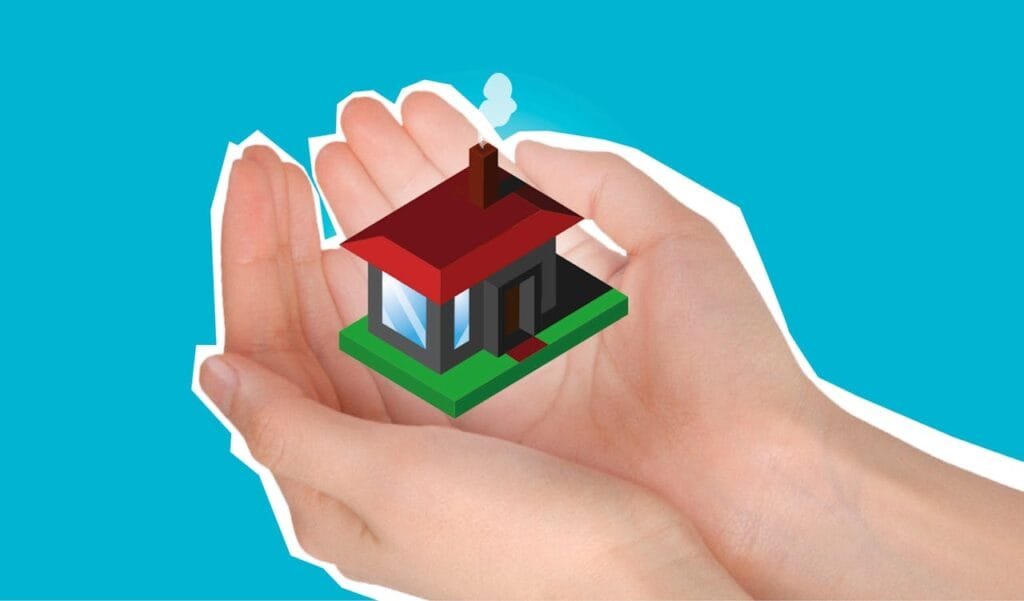Marketing a home care business comes with its unique set of challenges and opportunities. Given the sensitive nature of the services provided, trust and reliability are key factors. A successful marketing strategy should focus on building these elements while reaching out to potential clients and their families.
Understanding Your Market
Understanding your market is a foundational step in developing effective marketing strategies for your home care business. Knowing who your clients are, what they need, and how they make decisions will guide every aspect of your marketing efforts.
Deep Demographic Analysis
A thorough demographic analysis goes beyond identifying age and income. Delve into specific details about your target market to create a comprehensive profile.
Create detailed client personas that include specifics like health conditions, lifestyle preferences, cultural backgrounds, and support systems.
These personas should be as detailed as possible, including factors like daily routines, primary concerns, and decision-making processes.
Understand the dynamics within the families of your potential clients. In many cases, family members are heavily involved in the decision-making process for home care services. Identify who the key decision-makers are
(e.g., adult children, spouses) and what factors they consider most important.
Psychographic Insights
Psychographics delve into the attitudes, values, and psychological traits of your market. This insight is crucial for crafting messages that resonate on a deeper level.
Identify the emotional triggers that drive decisions in home care. These might include fears about safety, desires for independence, or the need for companionship.
Tailor your marketing messages to address these emotions directly, offering reassurance and solutions.
Segment your market based on lifestyle choices and preferences.
For instance, some clients may prioritize physical activities and wellness, while others may focus on social interactions and mental health. Understanding these preferences allows you to tailor your services and marketing messages accordingly.
Competitive Analysis
A comprehensive competitive analysis helps you identify gaps in the market and areas where you can differentiate your services.
Compare your services with those of your competitors. Identify what they offer, their pricing structures, and their marketing strategies.
Look for gaps where your business can provide superior value or unique offerings.
Position your business to highlight your unique strengths. Whether it’s specialized care for certain conditions, flexible scheduling, or exceptional customer service, clearly communicate what sets you apart from the competition.
Client Journey Mapping
Understanding the client journey helps you identify touchpoints where you can influence decisions and improve client experiences.
Map out the stages of the client journey from initial awareness to long-term loyalty.
Each stage should include the key actions, thoughts, and emotions of the client. This mapping helps you identify opportunities to engage and support clients at each step.
Identify common pain points in the client journey and develop strategies to address them.
For example, if clients find the process of assessing home care needs overwhelming, offer free consultations and clear, easy-to-understand informational resources.
Utilizing Data Analytics
Data analytics provide actionable insights that can refine your marketing strategies and improve client acquisition and retention.
Implement systems to collect and analyze data from various touchpoints, including website visits, social media interactions, and client feedback.
Use this data to understand client behaviors and preferences better.
Utilize predictive analytics to anticipate future trends and client needs. For example, analyzing demographic trends can help you predict an increase in demand for certain services, allowing you to prepare and adjust your marketing strategies accordingly.
Community Engagement and Feedback
Engaging with your community and gathering feedback helps you stay attuned to market needs and enhance your service offerings.
Organize local focus groups to gather in-depth feedback directly from your target audience.
These sessions can provide valuable insights into client needs, preferences, and areas for improvement.
Active participation in community events and initiatives helps build your reputation and visibility. It also provides opportunities to engage with potential clients and gather real-time feedback on your services and marketing efforts.
Building a Strong Online Presence
A strong online presence is essential for any business today. It helps you reach a wider audience and establish credibility.
Develop a Professional Website
Your website is often the first point of contact for potential clients. Ensure it is professional, easy to navigate, and provides all necessary information about your services. Include testimonials and case studies to build trust.
Optimize for Search Engines (SEO)
Search engine optimization (SEO) helps your website rank higher in search results, making it easier for people to find you. Use relevant keywords, create high-quality content, and ensure your site is mobile-friendly.
Advanced SEO Strategies
Basic SEO practices are essential, but to stand out in a competitive market, advanced SEO strategies should be employed.
Focus on local SEO to ensure that your home care business appears in local search results. Optimize your Google My Business profile by keeping it updated with accurate information, including your address, phone number, and hours of operation.
Encourage satisfied clients to leave reviews on your Google profile to enhance your credibility and visibility.
Develop content clusters around key topics related to home care. Create a central pillar page that covers a broad topic comprehensively, then produce related subtopics as cluster content.
This approach not only improves your site’s structure but also signals to search engines that your site is an authority on these topics.
Engaging and Interactive Website Features
Your website should not only provide information but also engage visitors and encourage interaction.
Implement live chat support on your website to provide immediate assistance to visitors. This feature can help answer questions in real-time, guide potential clients through your services, and collect contact information for follow-ups.
Offer virtual tours of your facilities and services. This can include video walkthroughs of your care facilities and video testimonials from satisfied clients and their families.
These interactive features build trust and give potential clients a transparent view of what to expect.
Comprehensive Social Media Strategy
A strategic and comprehensive approach to social media can significantly boost your online presence.
Develop tailored strategies for different social media platforms.
For example, use Facebook for community engagement and detailed posts about your services, Instagram for visual storytelling and showcasing day-to-day activities, and LinkedIn for professional networking and sharing industry insights.
Partner with influencers who have a strong following in the senior care and health sectors.
These influencers can share their experiences with your services, providing authentic endorsements that resonate with their audience.
Content Marketing Excellence
Content marketing remains a cornerstone of building an online presence. Ensure your content is not only informative but also highly engaging.
Adopt a storytelling approach in your blog posts and articles. Share real-life stories of how your services have positively impacted clients’ lives.
This emotional connection can make your content more relatable and memorable.
Create a library of educational resources on your website. Offer downloadable guides, checklists, and eBooks on topics such as choosing the right home care provider, managing chronic illnesses at home, and tips for caregivers.
These resources can attract visitors seeking valuable information and convert them into clients.
Leveraging Email Marketing
Email marketing is a powerful tool for nurturing leads and maintaining relationships with clients.
Segmented Email Lists
Segment your email lists based on different criteria such as demographics, past interactions, and client needs. Tailor your email content to each segment to ensure relevance and higher engagement rates.
Automated Drip Campaigns
Implement automated drip campaigns to nurture leads over time.
For instance, when someone downloads an eBook from your site, they can be automatically enrolled in a series of follow-up emails that provide additional information and encourage them to book a consultation.
Analytics and Continuous Improvement
Regularly analyzing your online efforts and making data-driven improvements is crucial for sustained success.
Comprehensive Analytics Tools
Use comprehensive analytics tools such as Google Analytics, SEMrush, and social media insights to track the performance of your online activities.
Monitor metrics like website traffic, conversion rates, social media engagement, and email open rates.
Data-Driven Adjustment
s Based on your analytics, make data-driven adjustments to your strategies. If a particular blog post is driving significant traffic, consider creating more content on similar topics. If your email open rates are low, experiment with different subject lines and send times.
Crafting Engaging Content
Content marketing is a powerful way to attract and retain clients. By providing valuable information, you can position your business as an expert in home care.
Blogging
Start a blog on your website where you share tips, advice, and news related to home care. Topics could include health tips for seniors, caregiver support, and updates on your services.
Video Content
Videos are engaging and can effectively convey your message. Create videos that introduce your team, showcase your services, and share client testimonials. Short, informative videos on topics like home safety for seniors can also be very effective.
Building Trust and Credibility

In the home care industry, trust and credibility are crucial for attracting and retaining clients. Here’s how you can strategically build and maintain trust and credibility with your clients and community.
Transparency in Operations
Transparency in your operations is a fundamental aspect of building trust. Clients and their families need to know that your business operates with integrity and honesty.
Open Communication
Maintain open lines of communication with clients and their families. Regular updates on care plans, changes in schedules, and other relevant information should be communicated promptly and clearly.
This openness fosters trust and reassures clients that they are in good hands.
Ensure that your business policies and procedures are transparent and easily accessible. Provide detailed information about your services, pricing, and the processes you follow.
This transparency helps clients understand what to expect and builds confidence in your business.
Consistent Quality of Care
Delivering consistent, high-quality care is essential for building and maintaining trust. Clients need to feel assured that they will receive the same level of care every time.
Standardized Training Programs
Implement standardized training programs for your staff to ensure that all caregivers deliver care at a consistently high standard. Regular training and professional development opportunities help maintain and improve the quality of care provided.
Regular Performance Evaluations
Conduct regular performance evaluations of your staff. Provide constructive feedback and recognize those who excel. This not only motivates your team to maintain high standards but also reassures clients that you are committed to excellence.
Personal Connections and Empathy
Building personal connections and demonstrating empathy can significantly enhance trust and credibility.
Clients want to feel that their caregivers genuinely care about their well-being.
Personalized Care
Tailor your services to meet the unique needs of each client. Personalized care plans show that you understand and cater to individual preferences and requirements, which builds trust and satisfaction.
Train your staff to demonstrate empathy and compassion in their interactions with clients.
Small gestures of kindness and understanding can go a long way in building strong, trust-based relationships.
Leveraging Technology for Transparency
Utilizing technology can enhance transparency and trust in your home care services.
Client Portals
Develop client portals where clients and their families can access care schedules, caregiver notes, and other important information. This level of transparency ensures that clients are always informed and can easily track the care being provided.
Feedback Systems
Implement a feedback system where clients can easily share their experiences and suggestions. Use this feedback to continuously improve your services and demonstrate your commitment to client satisfaction.
Ethical Practices and Integrity
Upholding high ethical standards and demonstrating integrity in all aspects of your business are vital for building long-term trust.
Ensure that your business complies with all relevant regulations and standards.
Regular audits and compliance checks can help maintain high ethical standards and reassure clients that your business operates legally and ethically.
Be honest and transparent in your marketing efforts.
Avoid making exaggerated claims about your services. Instead, focus on sharing genuine success stories and testimonials that reflect the real experiences of your clients.
Building a Strong Reputation
A strong reputation is built over time through consistent, high-quality service and positive client experiences.
Invest in public relations to enhance your business’s reputation. Share success stories, client testimonials, and your contributions to the community through press releases and media engagements.
Engage actively with your community. Participate in local events, support community initiatives, and contribute to causes that align with your business values. This involvement not only builds goodwill but also enhances your business’s reputation as a trusted community partner.
Continuous Improvement and Adaptation
Commitment to continuous improvement and adaptation demonstrates that your business is proactive and dedicated to providing the best possible care.
Regular Assessments
Conduct regular assessments of your services and operations. Identify areas for improvement and implement changes promptly. This proactive approach shows clients that you are committed to excellence and continuous improvement.
Adaptation to Client Needs
Stay attuned to the evolving needs of your clients. Adapt your services to meet these changing needs and communicate these adaptations to your clients. This flexibility builds trust and shows that you prioritize client satisfaction.
Building Relationships with Community Organizations

Expanding your home care business by building strong relationships with community organizations can be a game-changer. These connections not only enhance your credibility but also provide a steady stream of referrals and collaboration opportunities. Here’s how to strategically and effectively build and maintain these relationships.
Identify Key Community Organizations
Start by identifying key community organizations that align with your mission and values.
These can include local senior centers, health clinics, non-profit organizations, religious institutions, and social clubs that cater to the elderly and disabled.
Research and Mapping
Conduct thorough research to understand the landscape of community organizations in your area. Create a detailed map of these entities, including contact information, their primary activities, and how they align with your services.
This map will serve as your strategic guide for outreach.
Prioritize Partnerships
Not all community organizations will have the same level of impact. Prioritize partnerships based on their reach, reputation, and the potential for mutual benefit.
Focus your efforts on building relationships with organizations that have a significant influence in your target market.
Develop a Value Proposition
When approaching community organizations, it’s crucial to present a clear value proposition. Explain how a partnership with your home care business can benefit them and their members.
Tailored Proposals
Create tailored proposals for each organization. Highlight specific ways in which your services can complement their mission and enhance their offerings. For example, propose workshops on senior health care at senior centers or offer free consultations at local clinics.
Mutual Benefits
Emphasize the mutual benefits of the partnership. For instance, your business can provide expert talks, free health screenings, or co-host events. In return, the organization can offer you exposure to their members, endorsement, and the opportunity to distribute your marketing materials.
Active Engagement and Participation
Building relationships goes beyond initial contact; it requires ongoing engagement and participation in community activities.
Attend Events Regularly
Make it a point to regularly attend events hosted by these organizations.
This consistent presence shows your commitment and helps you build personal connections with key stakeholders and potential clients.
Offer Expertise and Resources
Position your business as a valuable resource. Offer to speak at events, provide educational materials, or host joint events. Sharing your expertise not only builds credibility but also keeps your business top of mind among community members.
Joint Initiatives and Programs
Collaborate with community organizations to develop joint initiatives and programs that serve the community and promote your business.
Co-branded Workshops and Seminars
Develop co-branded workshops and seminars on topics relevant to home care, such as managing chronic illnesses, fall prevention, and nutritional advice for seniors.
These events can be promoted through both your channels and the organization’s networks, ensuring wider reach and engagement.
Community Health Fairs
Organize community health fairs in partnership with local health clinics and non-profits. Offer free health screenings, informational booths, and interactive sessions.
Such initiatives not only provide valuable services to the community but also enhance your business’s visibility and reputation.
Leverage Digital Platforms
Utilize digital platforms to maintain and strengthen relationships with community organizations.
Joint Online Campaigns
Launch joint online campaigns to promote health awareness and your services. Use social media, email newsletters, and online forums to reach a broader audience. Ensure that the content is co-branded to reflect the partnership and the combined expertise of both entities.
Virtual Events
In addition to physical events, host virtual events such as webinars and online workshops.
This approach allows you to reach community members who may not be able to attend in person, expanding your influence and demonstrating your adaptability to current trends.
Evaluate and Adjust Strategies
Finally, continually evaluate the effectiveness of your community engagement strategies and make adjustments as needed.
Gather Feedback
Solicit feedback from community organizations and event participants to understand what’s working and what can be improved. Use surveys, follow-up calls, and meetings to gather insights.
Refine Your Approach
Based on the feedback, refine your approach to ensure that your partnerships are as effective and mutually beneficial as possible. Be open to trying new strategies and continuously seek ways to enhance your collaboration efforts.
Utilizing Online Advertising
Online advertising can help you reach a larger audience and target specific demographics effectively.
Pay-Per-Click (PPC) Advertising
Use platforms like Google Ads to create PPC campaigns. Target keywords related to home care services to attract potential clients searching for these services online.
Social Media Ads
Run targeted ads on social media platforms like Facebook and Instagram. You can target specific demographics, such as age groups, locations, and interests, to reach potential clients and their families.
Offering Flexible Payment Options
Flexible payment options can make your services more accessible to a wider range of clients.
Accept Various Payment Methods
Offer multiple payment options, including credit cards, debit cards, and electronic transfers. This convenience can make a big difference for clients and their families.
Financing Options
Consider partnering with financing companies to offer payment plans or financing options. This can help clients afford your services without financial strain.
Monitoring and Analyzing Results

To ensure your marketing efforts are effective, it’s important to regularly monitor and analyze the results.
Use Analytics Tools
Utilize tools like Google Analytics to track website traffic, social media insights, and email campaign performance. These tools can provide valuable data on what’s working and what needs improvement.
Adjust Strategies Based on Data
Use the insights gained from analytics to adjust your marketing strategies. Focus more on the tactics that are delivering results and reconsider those that aren’t performing well.
Wrapping it up
Growing your home care business requires a strategic approach to marketing, focusing on building trust and credibility with clients and the community. By understanding your market, creating a strong online presence, engaging with community organizations, providing exceptional customer service, and leveraging technology, you can effectively attract and retain clients.
Consistency, transparency, and a commitment to high-quality care will ensure your business stands out in this competitive field. By following these actionable strategies, your home care business can thrive, providing essential services to those in need while building lasting relationships based on trust and integrity.
READ NEXT:
- Top Social Media Strategies for Realtors
- Creating Eye-Catching Social Media Banners
- Innovative Ideas for Building a Social Network
- How to Create a Standout Social Media Profile Picture
- Peaceful and Inspiring Social Media Post Ideas for Yoga Instructors






















Comments are closed.